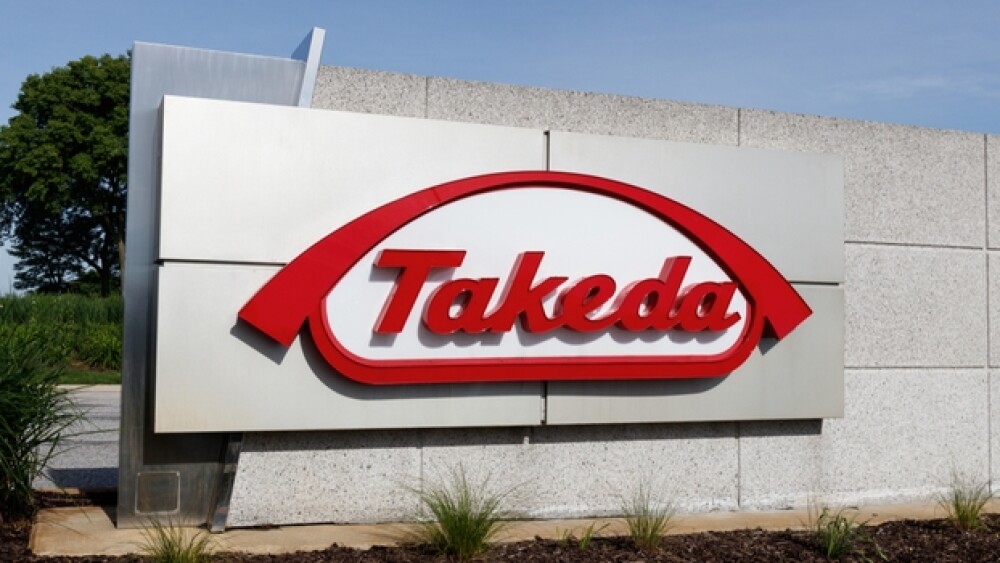Takeda will advance its experimental drug for plaque psoriasis, TAK-279, to Phase III later this year after the TYK2 inhibitor met its primary and secondary endpoints in a Phase IIb study.
Pictured: Takeda Headquarters/Courtesy of Getty Images
Takeda will advance its experimental drug for plaque psoriasis, TAK-279, to Phase III later this year after the TYK2 inhibitor met its primary and secondary endpoints in a Phase IIb study.
The data, released Saturday, showed that more patients with moderate-to-severe plaque psoriasis who received TAK-279 reached Psoriasis Area and Severity Index (PASI) 75 in the 5 mg, 15 mg and 30mg dosing arms versus placebo at 12 weeks.
The data were presented at the American Academy of Dermatology annual meeting in New Orleans and show why Takeda paid $4 billion for the oral TYK2 inhibitor from Nimbus Therapeutics earlier this year.
The psoriasis medicine has the potential to be the best in its class, according to Nimbus.
The drug would compete with Bristol Myers Squibb’s oral TYK2 inhibitor, Sotyktu (deucravacitinib), which received FDA approval last September for adults with moderate-to-severe plaque psoriasis who are candidates for systemic therapy or phototherapy.
The new study results come as the FDA has been looking to crack down on Janus protein tyrosine kinase (JAK) inhibitor drugs. In September, the agency said all the medications it has approved involving JAK inhibitors to treat certain chronic inflammatory conditions require warning labels about the increased risk to patients of serious heart-related events, cancer, blood clots and death.
The agency expressed additional concerns about potential safety issues with JAK inhibitors in December, placing new safety warnings on that drug class. The move affected AbbVie’s Rinvoq (upadacitinib), which the company has seen as a successor to its revenue-driving Humira.
Takeda representatives believe TAK-279 has the potential to overcome the JAK inhibitor issues.
“The highly selective TYK2 inhibition seen with TAK-279 spares inhibition of other members of the Janus kinase (JAK) family, which we believe should avoid JAK-related toxicities,” said Andy Plump, president of R&D at Takeda, in a prepared statement after announcing the new study results.






